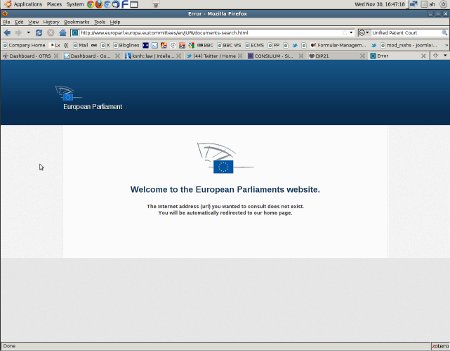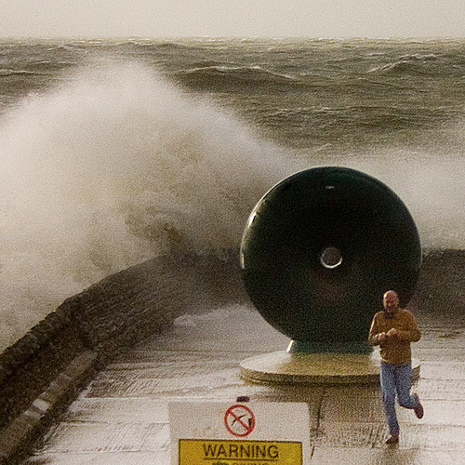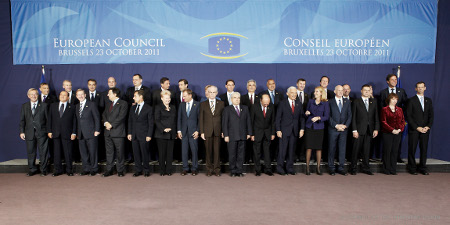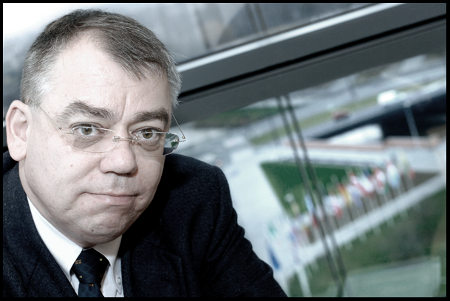Since more than a decade all important bodies of national states as well as of the European Union do have a website of their own. This is partially welcomed by broad circles of clerks as well as of politicians because of such website can well be utilised as a showcase for press releases and other advertising-style material. On the other hand, such technical means can as well be used to facilitate the inspection of internal documents by the general public, and this is something not everyone likes because of sharing internal documents in many cases also means sharing some of the power conferred by the office.
Not long ago I posted an article based on certain documents of the Committee on Legal Affairs (JURI) of the European Parliament. Since then, obviously a relaunch of the entire website of the European Parliament has happened. Guess what now works and what not:
Continue reading »
Today, in the Court of Justice of the European Union the Opinion of Advocate General BOT concerning Case C‑307/10 has been delivered (Chartered Institute of Patent Attorneys v Registrar of Trade Marks (Reference for a preliminary ruling brought by the Person Appointed by the Lord Chancellor under Section 76 of the UK Trade Marks Act 1994, on Appeal from the UK Registrar of Trade Marks, submitted by the High Court of Justice of England and Wales (United Kingdom)).
What is the matter?
Continue reading »
Warsaw, December 22, 2011: The Day Of Initialling The EU Unified Patent Court
Document 17539/11 authored by the Polish EU Presidency, titled Draft Agreement on the creation of a Unified Patent Court – Guidance for future work and directed to Permanent Representatives Committee ( COREPER Part 1) unveils under item 11 thereof:
The Presidency announced its intention to organise the initialling ceremony whereby the text of the Agreement could be finalised in Warsaw on 22 December 2011. The Presidency considers that the Member States should be able to arrive at a political agreement on the text of the Agreement at the meeting of the Competitiveness Council on 5 December 2011 on the basis of this set of compromise proposals, despite the fact that some issues of political importance could be left to be agreed at a later stage, but before the signature of the Agreement.
Well this appears to be quite big an issue. Why? Well, … in Document 16741/11 titled Draft agreement on a Unified Patent Court and draft Statute – Revised Presidency text we see current wording of Article 5 (1a) printed as follows:
(1a) The central division shall have its seat in [...]. The contracting Member State hosting the central division shall provide the necessary facilities for that purpose.
And, in a corresponding way, current wording of Article 7 (4) reads:
(4) The Court of Appeal shall have its seat in [...].
It is to be understood that the the initialling ceremony scheduled to happen in Warsaw on December 22 would be pointless if there isn’t a finalsed text of the entire Agreement ready for signing .. without those ellipsis in Articles 5 (1a) and 7 (4).
With other words: A political decision as to how to locate the seat of central portions of the UPC system is due to well ahead of the planned ceremony in Warsaw. For more details on the timetable, see also Volker Metzler’s post on visaepatentes.com.
Continue reading »
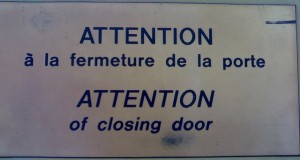 As reported earlier on this blog (see here), the EU Commission is giving high priority to implementing the Unitary Patent and related Unified Patent Court System, in fact, “the objective is to reach agreement on a new patent system by the end of the year” (see MEMO/11/643).
As reported earlier on this blog (see here), the EU Commission is giving high priority to implementing the Unitary Patent and related Unified Patent Court System, in fact, “the objective is to reach agreement on a new patent system by the end of the year” (see MEMO/11/643).
In one of our latest articles, we reported that European executive authorities are now, as the end of the year approaches, “rushing to set up the EU Unified Patent Court“. (see Document 17317/11). But also the legislative authorities in charge – the European Parliament and its Legal Affairs Committee “JURI” – are heavily involved, as has been reported on this blog either (see here or here).
However, as the Executive (i.e. the European Commission and Council) can only suggest a new or amended piece of law, a parliamentary process that may be required to put the law in force might be longish and troublesome - especially if a self-confident Parliament has to decide on a controversial and rarely used legal institution as enhanced cooperation in case of the implementation of the Unitary Patent. As the Unified Patent Court system will be implemented by international agreement between 25 EU member states (EU27 except Spain and Italy), the EU Parliament will not have to adopt a formal position on that issue. Nevertheless, Klaus-Heiner Lehne, Rapporteur of the JURI Committee came up with a Draft Report on a jurisdictional system for patent disputes (2011/2176 (INI)), as reported here.
To ensure that broad discussions and public comments would not endanger the ambitious time schedule for reaching an agreement, the three Rapporteurs of the the JURI Committee – Bernhard Rapkay (S&D, Germany), Raffaele Baldassarre (EPP, Italy), Klaus-Heiner Lehne (EPP, Germany) – have been equipped on 22 November 2011 with a mandate (see agenda, nos. 33, 34, 35) to negotiate the agreement on the Unitary Patent and the related Language Regime with the European Council in back rooms behind closed doors. (see e.g. press release as well as press reports [1] and [2]).
On November 22, 2011, the General Secretariat of the Council of the European Union has sent Document 17317/11 to the Permanent Representatives Committee (COREPER Part 1) titled Draft Agreement on a Unified Patent Court and draft Statute – Draft Declaration for an operational UPC – Revised Articles 18, 19, 58, 58a, 58d and 59. Following up to discussions having taken place in the Permanent Representatives Committee on November 18, 2011, on the basis of the Note to the Permanent Representatives Committee contained in 17120/11 REV 1 (not published), the Polish EU Presidency has submitted, for discussion on November 23, the following texts :
- A draft Declaration, to be made by the Contracting Member States upon signature of the Agreement, ensuring that the future Unified Patent Court shall be operational at the moment its enters into force (see Annex I) as referred to in point 8 of the above Note;
- Revised drafts for Articles 18, 19, 58, 58a, 58d and 59 (changes in relation to the previous version set out in 16741/11 are underlined) (see Annex II), which reflect proposals of the Presidency as outlined in the above Note.
The Draft Declaration sets out the political will power not only to rush the Unified Patent Court (UPC) through as fast as possible but also to make sure that it will be operational immediately after it has been formally set up (Annex I):
Continue reading »
Even beyond the Draft Report on a jurisdictional system for patent disputes (Rapporteur: Klaus-Heiner Lehne) reported earlier (here and here) there appear to exist a number of interesting papers of the Committee on Legal Affairs of the European Parliament (JURI) available on-line:
- Document PE472.331v01-00: Amendments 1 – 25 / concerning “Motions for a resolution” – Draft report by Klaus-Heiner Lehne (2011/2176(INI)) – Jurisdictional system for patent disputes;
- Document PE472.334v02-00: Draft Report on the proposal for a Council regulation implementing enhanced cooperation in the area of the creation of unitary patent protection with regard to the applicable translation arrangements (COM(2011)0216 – C7-0145/2011 – 2011/0094(CNS)) including Amendments 1-19; Rapporteur: Raffaele Baldassarre;
- Document PE472.334v02-00: Amendments 20 – 47 / Draft report by Raffaele Baldassarre (2011/0093(COD)) - Enhanced cooperation in the area of the creation of unitary patent protection with regard to the applicable translation arrangements; and
- Document PE472.059v02-00: Draft Report on the proposal for a Regulation of the European Parliament and of the Council implementing enhanced cooperation in the area of the creation of unitary patent protection (COM(2011)0215 – C7-0099/2011 – 2011/0093(COD))including Amendments 1 – 44; Rapporteur: Bernhard Rapkay; and
- Document PE472.059v02-00: Amendments 45 – 94 / Draft report by Bernhard Rapkay (2011/0093(COD)) - Proposal for a regulation of the European Parliament and of the Council implementing enhanced cooperation in the area of the creation of unitary patent protection / Proposal for a regulation (COM(2011)0215 – C7-0099/2011).
These papers apparently have been discussed during the recent meeting of the Legal Committee held on November 21-22, 2011, in Brussels (Document PE475.963v01-00). I have no clue so far as to the outcome of that session.
Continue reading »

Are European Patent Attorneys prepared to fight for their right to represent parties before the Unified Patent Court in both validity and litigation cases?
As reported earlier on this blog, the debate on the role of Patent Attorneys before the future Unified Patent Court has been reopened by the JURI Committee of the European Parliament, which suggested in a “Draft Report on a jurisdictional system for patent disputes” (2011/2176 (INI)) dated 9 September 2011 that
“the parties should be represented only by lawyers authorised to practise before a court of a Contracting Member State; the representatives of the parties might be assisted by patent attorneys who should be allowed to speak at hearings before the Court”,
which, if ever put into action, would fall back behind the current situation in major European patent jurisdictions, such as UK or Germany, where patent attorneys are entitled to represent parties at least in validity actions.
As opposed to the JURI suggestion, current Article 28 (Representation) of the “Revised Presidency Text” of the Draft Agreement on a Unified Patent Court and draft Statute (Doc. 16023/11) dated 26 October 2011 rules that besides national lawyers
(2) Parties may alternatively be represented by European Patent Attorneys who are entitled to act as professional representatives before the European Patent Office pursuant to Article 134 of the EPC and who have appropriate qualifications such as a European Patent Litigation Certificate.
LOBBYING …
One may ask why JURI tries to exclude European Patent Attorneys from representation before the Unified Patent Court. I don’t have an answer yet, but it’s a matter of fact that at least 15 out of 25 members of the JURI Committee are lawyers (e.g. rapporteur Klaus-Peter Lehne is a partner of TaylorWessing, having one of the largest patent law departments in Europe), while none of the members is a patent attorney or – at least according to the biographies available on the website of the European Parliament – has any significant experience or deeper insight in patents, patent law, or the patent system.
Since JURI does not provide any further arguments apart from that “it is of utmost importance that parties are represented by lawyers”, it may not be too far fetched to consider JURI’s demand as plain lobbyism or, at least, resulting from a significant lack of knowledge regarding the competences, qualifications, and day-to-day practice of European Patent Attorneys.
In fact, as opposed to many other fields of law, intellectual property and especially patents are a very lucrative and even growing legal market for lawyers, so that there is certainly quite some lobbying going on in this question, which is considered crucial for the business model of patent lawyers.
For example, the “patent attorneys may assist lawyers” wording in JURI’s Draft Report looks as if it was just copied from a position paper of the vocal lawyer’s lobby group CCBE (see also the “concerns” of CCBE’s secretary-general Jonathan Goldsmith and the critical response of Tibor Gold, editor of the monthly Journal at The Chartered Institute of Patent Attorneys).
In a reference for a preliminary ruling from the Rechtbank van eerste aanleg te Brussel (Belgium) to the Court of Justice of the European Union lodged on July 19, 2010 (Belgische Vereniging van Auteurs, Componisten en Uitgevers (Sabam) v Netlog NV, Case C-360/10), a legal question was posed as follows:
Do Directives 2001/29 ( 1 ) and 2004/48, ( 2 ) in conjunction with Directives 95/46, ( 3 ) 2000/31 ( 4 ) and 2002/58, ( 5 ) construed in particular in the light of Articles 8 and 10 of the European Convention on the Protection of Human Rights and Fundamental Freedoms, permit Member States to authorise a national court, before which substantive proceedings have been brought and on the basis merely of a statutory provision stating that: ‘They [the national courts] may also issue an injunction against intermediaries whose services are used by a third party to infringe a copyright or related right’, to order a hosting service provider to introduce, for all its customers, in abstracto and as a preventive measure, at its own cost and for an unlimited period, a system for filtering most of the information which is stored on its servers in order to identify on its servers electronic files containing musical, cinematographic or audio-visual work in respect of which SABAM claims to hold rights, and subsequently to block the exchange of such files?
This case throws a spotlight on a phenomenon which has become ubiquitous in the age of the Internet: When there is a case of wrongdoing related to the digital domain, stakeholders find that often it is inconvenient, sometimes even practically impossible to go for the primary wrongdoer because of difficulties to identify him or her or because of the wrongdoer is seated in a foreign jurisdiction which might be less than co-operative due to a variety of reasons. Cases based on some sort of infringement of IP rights and related to the digital domain are notorious for this kind of scenario.
So why not going for the intermediaries, which are plenty and inevitable necessary for running the Internet, some of them surely located in your own jurisdiction or at least in a foreign jurisdiction which shows a co-operative habit, many rights holders may ask themselves.
Continue reading »
It has just now come to my attention that on September 23, 2011, the Committee on Legal Affairs of the European Parliament has published a Draft Report on a jurisdictional system for patent disputes (2011/2176(INI)) (Rapporteur: Klaus-Heiner Lehne). The document comprises a text of a motion for a European Parliament resolution on a jurisdictional system for patent disputes (2011/2176(INI)) generally acknowledging that the establishment of a coherent patent litigation system in the Member States taking part in the enhanced cooperation should be accomplished by an international agreement between these Member States creating a Unified Patent Court. However, there is an interesting twist:
Continue reading »
The k/s/n/h::law blog
Some of the patent attorneys of the KSNH law firm have joined their efforts to research what is going on in the various branches of IP law and practice in order to keep themselves, their clients as well as interested circles of the public up to date. This blog is intended to present results of such efforts to a wider public.
Blog Archives
- November 2013 (2)
- October 2013 (1)
- September 2013 (1)
- August 2013 (2)
- July 2013 (3)
- June 2013 (5)
- March 2013 (5)
- February 2013 (4)
- January 2013 (5)
- December 2012 (5)
- November 2012 (5)
- July 2012 (5)
- June 2012 (8)
- May 2012 (5)
- April 2012 (3)
- March 2012 (4)
- February 2012 (5)
- January 2012 (6)
- December 2011 (12)
- November 2011 (9)
- October 2011 (9)
- September 2011 (4)
- August 2011 (7)
- July 2011 (4)
- June 2011 (1)
Blog Categories
- business methods (6)
- EPC (7)
- EPO (12)
- EU law (92)
- ACTA (8)
- CJEU (4)
- Comitology (1)
- competition law (2)
- Enforcement (6)
- EU Unified Patent Court (62)
- FTA India (1)
- TFEU (2)
- Trade Marks (5)
- European Patent Law (37)
- German Patent ACt (PatG) (1)
- German patent law (5)
- Germany (6)
- Pirate Party (3)
- International Patent Law (4)
- PCT (2)
- IP politics (10)
- licenses (2)
- Litigation (5)
- Patentability (7)
- Patents (12)
- Piratenpartei (2)
- Software inventions (10)
- Uncategorized (9)
- Unitary Patent (24)
- US Patent Law (4)
Comments
- kelle on Germany: Copyright Protection More Easily Available For Works Of “Applied Arts”
- Time Limits & Deadlines in Draft UPCA RoP: Counting The Days - KSNH Law - Intangible.Me on Wiki Edition of Agreement on Unified Patent Court Agreement (UPCA)
- Time Limits & Deadlines in Draft UPCA RoP: Counting The Days | ksnh::law on Wiki Edition of Agreement on Unified Patent Court Agreement (UPCA)
- Wiki Edition of Agreement on Unified Patent Cou... on Wiki Edition of Agreement on Unified Patent Court Agreement (UPCA)
- European Commission Takes Next Step Towards Legalising Software Patents in Europe | Techrights on EU Commission publishes Proposal of amendend Brussels I Regulation for ensuring Enforcement of UPC Judgements
Blogroll
- 12:01 Tuesday
- America-Israel Patent Law
- Anticipate This!
- AwakenIP
- BlawgIT
- BLOG@IPJUR.COM
- BP/G Radio Intellectual Property Podcast
- Broken Symmetry
- Class 46
- Director's Forum: David Kappos' Public Blog
- Gray on Claims
- I/P UPDATES
- IAM Magazine Blog
- Intellectual Property Intelligence Blog
- IP Asset Maximizer Blog
- IP CloseUp
- IP Dragon
- IP Watch
- IP Watchdog
- IPBIZ
- ipeg
- IPKat
- ITC 337 Law Blog
- Just a Patent Examiner
- K's Law
- MISSION INTANGIBLE
- Patent Baristas
- Patent Circle
- Patent Docs
- Patently Rubbish
- PatentlyO
- Patents Post-Grant
- Reexamination Alert
- SPICY IP
- Tangible IP
- The 271 Patent Blog
- The Intangible Economy
- THE INVENT BLOG®
- Think IP Strategy
- Tufty the Cat
- Visae Patentes
The KSNH blogging landscape


This blog and the German-language sister blog k/s/n/h::jur link to the two popular and privately run blogs IPJur und VisaePatentes and continue their work and mission with a widened scope and under the aegis of our IP law firm.
ksnhlaw on Twitter
- No public Twitter messages.
 KSNH::JUR Feed (german)
KSNH::JUR Feed (german)- Ist Verschlüsselung passé? September 6, 2013Auf verschiedenen Feldern beruflicher Praxis ist dafür zu sorgen, dass Kommunikation vertraulich bleibt. Die trifft beispielsweise für Ärzte zu, aber auch für Anwälte, darunter auch Patentanwälte. Einer der zahlreichen Aspekte, die in diesem Zusammenhang eine Rolle spielen, ist die Technik, um die Vertraulichkeit beruflicher Kommunikation sicherzustellen. Wa […]
- EU-Einheitspatent: Demonstrativer Optimismus und Zahlenmystik allerorten – Naivität oder politische Beeinflussung? June 26, 2013Nach mehreren vergeblichen Anläufen zur Schaffung eines EU-weiten Patentsystems wurde 1973 als Kompromiss das Europäische Patentübereinkommen unterzeichnet, welches unabhängig von der seinerzeit noch EWG genannten Europäischen Union System zur zentralisierten Patenterteilung mit nachgeordnetem Einspruchsverfahren durch das Europäische Patentamt schuf. Wie wi […]
- Moderne Zeiten oder: DPMA und Patentgericht streiten über die elektronische Akte April 25, 2013Bekanntlich hat das Deutsche Patent- und Markenamt (DPMA) im Jahre 2013 mit der rein technischen Fertigstellung der Einrichtungen zur elektronischen Akteneinsicht einen wichtigen Meilenstein seines Überganges von der Papierakte zur “elektronischen Akte” erreicht. Im DPMA werden aber bereits seit dem 01. Juni 2011 Patente, Gebrauchsmuster, Topografien und erg […]
- Gutachten zu Forschung, Innovation und technologischer Leistungsfähigkeit Deutschlands 2013 March 11, 2013Unter dem Datum vom 28. Februar 2013 ist die Bundestags-Drucksache 17/12611 veröffentlicht worden Sie trägt den Titel Unterrichtung durch die Bundesregierung - Gutachten zu Forschung, Innovation und technologischer Leistungsfähigkeit Deutschlands 2013. Die Bundesregierung legt dem Deutschen Bundestag seit dem Jahr 2008 […]
- 3D-Printing: Zum Filesharing von 3D-Modelldaten February 25, 2013In meiner kleinen zuvor angekündigten Reihe über rechtliche Aspekte des 3D Printing komme ich heute auf die Frage zu sprechen, ob die Hersteller von Gerätschaften es hinnehmen müssen, wenn Ersatztreile davon – vom Brillengestell über Smartphone-Gehäuseteile bis hin zu Rastenmähermotor-Abdeckungen – gescannt und die daraus […]
- Ist Verschlüsselung passé? September 6, 2013

